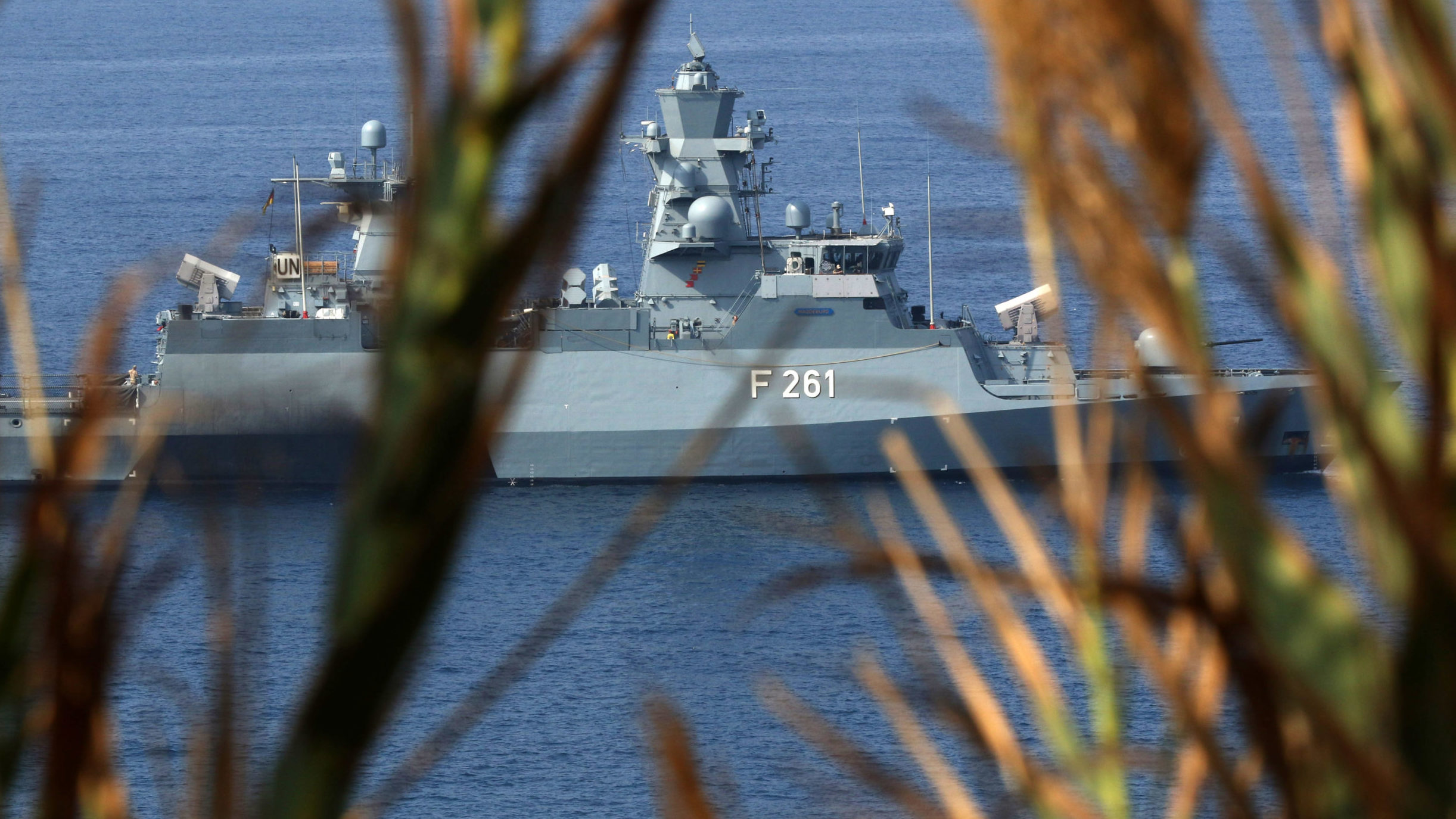Israel, Lebanon End Round 2 of Maritime Talks with Nothing to Show
Negotiations to resume in November to resolve sea-border dispute that concerns potential gas deposits
Israeli and Lebanese negotiators will meet again in November after apparently making little headway during their session in Lebanon on Thursday to demarcate sea borders that will determine who can explore for gas and where.
After the second day of the second round of talks concluded on Thursday, the US, which is sponsoring the negotiations, issued a joint statement with the Office of the United Nations Special Coordinator for Lebanon (UNSCOL), saying the representatives held “productive” talks.
“The US and UNSCOL remain hopeful that these negotiations will lead to a long-awaited resolution,” it said.
UNSCOL has hosted the talks.
On Wednesday, reports surfaced that the Israeli team was taken aback by a fresh demand by Beirut to draw the border in accordance with a 1923 French-British agreement that would transfer to Lebanon Israel’s already-productive Karish gas field and another bloc for which the Israeli government is soliciting drilling bids.
Israeli officials say the new demand is a non-starter as the two sides and Washington have agreed that only the disputed waters farther north will be negotiated.
“From what I understand, [the two sides] don’t intend to look at the formal maritime border as the be-all and end-all,” Pnina Sharvit Baruch, a reserve colonel and head of the law and national security program at the Institute for National Security Studies at Tel Aviv University, told The Media Line.
“It’s not a technical issue. They’re going to look for flexible solutions. As long as both sides agree on how to divide these gas reservoirs, it doesn’t have to be precisely according to the border,” she added.
It’s not a technical issue. They’re going to look for flexible solutions. As long as both sides agree on how to divide these gas reservoirs, it doesn’t have to be precisely according to the border
The negotiations, the first official diplomatic talks between Israel and Lebanon in decades, started two weeks ago in the Lebanese coastal town of Nakoura. At the time, both parties attempted to downplay the significance of the meetings and to lower expectations.
Iran-backed Hizbullah, designated a terror organization by the US, the EU and Israel, insisted the negotiations were not peace talks, while Israeli Energy Minister Yuval Steinitz, that delegation’s leader, tweeted: “We are not talking about negotiations for peace and normalization, rather an attempt to solve a technical, economic dispute.”
Baruch, who headed the Israeli military’s international law department and advised government officials on naval law, border demarcation and conflict resolution during past peace negotiations, says these talks have “the potential to be a win-win.”
“Both countries want this, for sure, but obviously Lebanon needs this more,” she said, noting Lebanon’s severe economic crisis. “Still, I’m not sure it will be enough because of domestic political reasons in Beirut. If this falls through, it probably won’t be because of Israel.”
Both countries want this, for sure, but obviously Lebanon needs this more
The discussions came about following intense US pressure on Lebanese President Michel Aoun, who finally relented despite strong objections from Hizbullah, the most powerful political group in Lebanon and an Aoun ally. If successful, they will resolve overlapping maritime claims for potential gas deposits in the Eastern Mediterranean – and could offer the struggling Lebanese economy some relief.
“This delegation caused quite an uproar,” Col. (ret.) Jacques Neriah, an expert on Lebanese politics from the Jerusalem Center for Public Affairs, told The Media Line.
“The former [Lebanese] prime minister accused the president of violating the constitution for not consulting him on the make-up of the delegation, while Hizbullah demanded that only military people be sent, so as not to symbolically recognize the Jewish state,” he said.
Neriah served as Israeli Prime Minister Binyamin Netanyahu’s foreign-policy advisor and participated in several rounds of peace negotiations. He is not optimistic.
“When we talked, it was like speaking to a wall. After 20 minutes, nothing was left to say, and everyone just left,” he recounted.
When we talked, it was like speaking to a wall. After 20 minutes, nothing was left to say, and everyone just left
Why did Aoun and his partners finally relent and agree to come to the negotiating table? Neriah calls this is “the million-dollar question.”
“After so many years of refusing to enter even remote talks, now they suddenly agree to meet in the same room,” he said. “Their hope is that the Americans will award them all their requests regarding economic relief on a silver platter if they just talk with Israel.”
The US government, as well as the EU and international monetary institutions, have pressed Beirut to agree to pass political and financial reforms in order to receive millions in economic aid.
“The fear of that aid being pulled, as well as fear of American sanctions, pushed Aoun to the table,” Neriah explained.
The fear of that aid being pulled, as well as fear of American sanctions, pushed Aoun to the table
“They also hope the gas in the Mediterranean will lift them out of the economic crisis, which is basically an energy crisis,” he noted.
Neriah dismisses the idea that the negotiations will lead to genuine peace talks between Israel and Lebanon.
“If anyone is hoping to punch a ticket to Beirut anytime soon, they can forget about it,” he says. “This is as limited as can be.”


